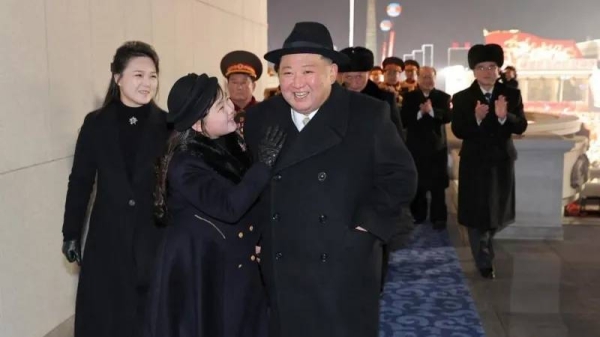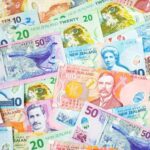South Korea is going to ban a popular North Korean propaganda song that praises Kim Jong Un. This decision was made due to the violation of the country’s National Security Act. The song, called “Friendly Father”, has gained popularity on TikTok since its release in April. It idolizes and glorifies Kim Jong Un, which goes against South Korea’s laws prohibiting behaviors and speeches in favor of the North Korean regime. The ban will block access to 29 versions of the music video, but the specifics of how this will be done were not explained.
The Korea Communications Standards Commission stated that the decision to ban the song came after a request from South Korea’s National Intelligence Service. They believe that the song is part of psychological warfare against South Korea and aims to portray Kim Jong Un in a positive light. Despite the impending ban, many South Koreans have expressed interest in the music video and have checked it out since the announcement. Some have even suggested that the video should remain accessible so that more people can enjoy it as a joke.
The song “Friendly Father” is the latest in a series of pop songs created by North Korea’s propaganda machine over the years. It describes Kim Jong Un as a “great leader” and a “friendly father”, terms that were previously used to describe North Korea’s first leader, Kim Il Sung. Some TikTok users enjoy listening to the song during their activities, such as working out or doing homework, while others appreciate its nostalgic style reminiscent of older Spanish and French pop music.
The Korean Peninsula has been divided since the Korean War ended in 1953 with an armistice agreement. Because a peace treaty was never signed, the two Koreas are technically still at war. Violating South Korea’s National Security Act can result in up to seven years in prison, although enforcement of the law has become more relaxed recently. There have been discussions about reviewing the law to protect free speech rights.
In conclusion, South Korea’s decision to ban the North Korean propaganda song “Friendly Father” reflects their commitment to upholding national security laws. Despite the ban, the song has generated interest among South Koreans who have viewed it as a joke or enjoyed its catchy tune. This case highlights the ongoing tensions between North and South Korea and the complex political dynamics on the Korean Peninsula. Ultimately, the ban on the song serves as a reminder of the deep-seated divisions between the two Koreas and the challenges of maintaining peace and stability in the region.











